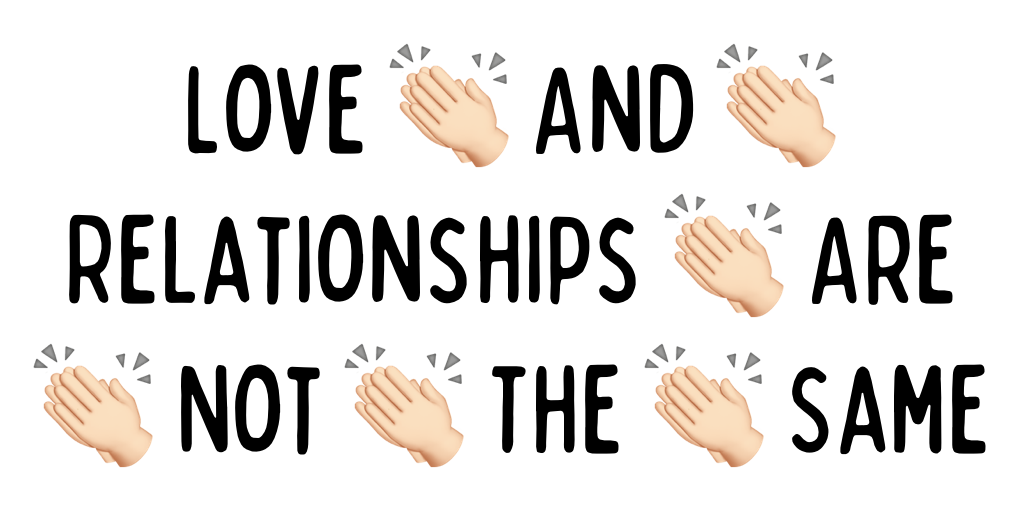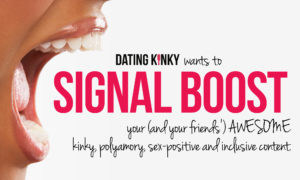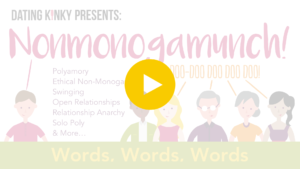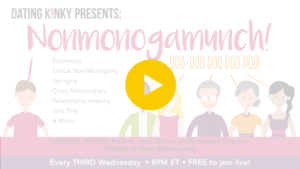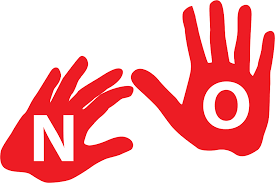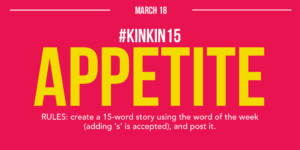I see a disturbing trend of forcing everything about a relationship into the box called “love,” and then telling people they are not loving hard enough or right enough or long enough to make their relationships work.
And I think that’s bullshit.
A big heaping pile of it.
And it’s fucking judge-y.
Which is not very loving—by their own damn standards.
I want to set the record straight. At least the record as I see it.
There is love.
And there is everything that goes into making relationships work:
•
Communication
•
Compassion
•
Respect
•
Honesty
•
Trust
And something a lot of people forget: Friendship, or actually LIKING the person.
And none of those are love.
In fact, they are different words because they are different concepts.
And to clarify, I’m going to include definitions for love as a noun and a verb:
love [ luhv ]
noun
1.
a profoundly tender, passionate affection for another person.
2.
a feeling of warm personal attachment or deep affection, as for a parent, child, or friend.
3.
sexual passion or desire.
verb (used with object), loved, lov·ing.
1.
to have love or affection for: All her pupils love her.
2.
to have a profoundly tender, passionate affection for (another person).
verb (used without object), loved, lov·ing.
1.
to have love or affection for another person; be in love.
+++++
Here’s the challenge as I see it. None of those definitions include the ability to maintain a relationship as a factor of love.
Or to be able to communicate.
Or even to not be an asshole.
Love is an internal process.
Erich Fromme says:
“This book … wants to show that love is not a sentiment which can be easily indulged in by anyone, regardless of the level of maturity reached by him. It wants to convince the reader that all his attempts for love are bound to fail, unless he tries most actively to develop his total personality, so as to achieve a productive orientation; that satisfaction in individual love cannot be attained without the capacity to love one’s neighbor, without true humility, courage, faith and discipline. In a culture in which these qualities are rare, the attainment of the capacity to love must remain a rare achievement.”
Thich Nhat Hanh says:
“To love without knowing how to love wounds the person we love.”
I think both of these men have it wrong.
They are trying to put a gateway on love. To make it something that is elite, and something that must be practiced.
To rip it from the hands of children and even adults that don’t meet the standards they set for love and loving.
And to me, that is pretty shitty.
It’s setting up love as something that other people can judge and measure for you. That they can look upon and say, “YUR DOIN IT RONG.”
Fuck that.
Fuck that all the way to the darkest, nastiest part of infinity, where the other self-congratulatory, judge-y as fuck academics, self-styled superiors in thought, and people who steal French fries reside and leave it there where it belongs to debate endlessly about who is worthy enough to love and be loved, and get on with your own life and loving.
Not that I think Erich Fromm is all wrong.
He’s not.
His bestselling book, “The Art of Loving” makes some amazing points.
The part I have a problem with is that he makes everything into LOVE.
And love just isn’t meant to be everything.
He says, “The first step to take is to become aware that love is an art, just as living is an art,” and I disagree with that, too.
Living is simply living. Existing.
You can make art with your life. Sure. I work on that every day.
But life is not art. My cat’s life is not art. A cockroach’s life is not art. A flower’s life is not art. It is a pattern. A process. A natural thing.
WHAT WE DO WITH IT is what matters.
And we can do art.
Or not.
Love is a feeling.
And we can feel that at any point in our lives.
But the skills of creating a relationship are different from love:
•
We can communicate with and without love. We can love with and without communication.
•
We can be compassionate with and without love. We can love with and without compassion.
•
We can respect others with and without love. We can love with and without respect.
•
We can be honest or lie with and without love. We can love with and without honesty.
•
We can trust with and without love. We can love with and without trust.
•
And we can like people we don’t love and love people we don’t like.
I do believe that it’s important to discuss and learn and grow our skills in all of these areas.
They make life better.
They make relationships better and easier.
They are good for us as humans who want to connect with others.
But let’s not confuse them with love. Let’s not entangle them unnecessarily. Let’s not suggest that because someone can’t find the words that they cannot love well or strongly.
Let’s not judge ourselves and the love we have for others by our failed relationships and mistakes.
Because loving harder is not enough.
Loving better is not enough.
Loving is not enough.
It takes more than love.
And the ability to love is one of the greatest gifts we have. Let’s not even try to decide who is worthy and who is not to experience that gift.


